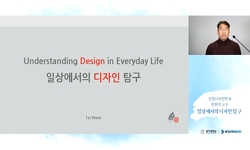생성형 인공 지능(Generative Artificial Intelligence)의 급속한 발전은 혁신적인 기술과 디자인 사고 프로세스(Design Thinking Process)에 큰 영향을 미치고 있다. 본 연구는 OpenAI의 ChatGPT-4을 이용하여 생...
http://chineseinput.net/에서 pinyin(병음)방식으로 중국어를 변환할 수 있습니다.
변환된 중국어를 복사하여 사용하시면 됩니다.
- 中文 을 입력하시려면 zhongwen을 입력하시고 space를누르시면됩니다.
- 北京 을 입력하시려면 beijing을 입력하시고 space를 누르시면 됩니다.
https://www.riss.kr/link?id=A109115822
- 저자
- 발행기관
- 학술지명
- 권호사항
-
발행연도
2024
-
작성언어
-
- 주제어
-
KDC
600
-
등재정보
KCI등재
-
자료형태
학술저널
-
수록면
25-44(20쪽)
- 제공처
-
0
상세조회 -
0
다운로드
부가정보
국문 초록 (Abstract)
생성형 인공 지능(Generative Artificial Intelligence)의 급속한 발전은 혁신적인 기술과 디자인 사고 프로세스(Design Thinking Process)에 큰 영향을 미치고 있다. 본 연구는 OpenAI의 ChatGPT-4을 이용하여 생성형 AI 개입이 디자인 사고 프로세스에 미치는 영향을 평가하고, 본 프로세스를 재평가하여 이론적 틀을 확립하고자 한다. 본 연구는 양적 및 질적 연구를 모두 수행하였으며, 양적 분석은 실험 조사, 단어 빈도, 동시 출현 빈도 및 CONCOR 분석을, 질적 분석은 실험 후 인터뷰를 통해 수행하였다. 피험자의 생성형 AI 경험 여부를 비교하여 실험 결과를 분석하였을 때, 생성형 AI가 문제 해결, 아이디어 생성 및 UX 디자인 실무 내 융합에 긍정적인 영향을 미친다는 것을 알 수 있었다. 또한, 심층 인터뷰를 통해 디자인 사고 프로세스에서 생성형 AI의 혁신성과 실무 내 적용 가능성을 확인할 수 있었다. 디자인 사고 프로세스 내 생성형 AI의 도입은 UX 디자인 작업 내 창의성과 생산성을 높이며 디자이너의 역할 강화 및 디자인 프로세스의 변화 가능성을 시사하였다. UX 방법론 내에 이러한 기술의 통합을 위해, 생성형 AI의 광범위한 적용 가능성 및 이에 대한 시사점을 탐색에 대한 후속 연구가 필요하다.
다국어 초록 (Multilingual Abstract)
The rapid evolution of Generative Artificial Intelligence with innovative technologies is making a significant impact within the Design Thinking Process. By using the ChatGPT-4 model from OpenAI, this study aims to evaluate the impact of Generative AI...
The rapid evolution of Generative Artificial Intelligence with innovative technologies is making a significant impact within the Design Thinking Process. By using the ChatGPT-4 model from OpenAI, this study aims to evaluate the impact of Generative AI on design activities and establish a theoretical framework by reevaluating the Design Thinking Process. This paper conducts both quantitative and qualitative analyses. The quantitative analysis is performed using experimental surveys, word frequency, co-occurrence frequency, and CONCOR analysis, and the qualitative analysis is carried out through post-experiment interviews. The findings, derived from the comparisons of teams with and without prior Generative AI experience, highlight the positive impact of Generative AI on problem-solving, idea generation, and the convergence within UX design practices. Additionally, through the in-depth interviews with participants, it is possible to confirm the novelty and usability of Generative AI in the Design Thinking Process. The intervention of Generative AI in the Design Thinking Process promises substantial benefits for enhancing the roles of UX designers and a shift in traditional design thinking, by facilitating increased creativity and productivity in UX design tasks. There is a call for broader recognition and integration of these technologies to redefine the UX design process and its outcomes. For a more integrated approach within the UX design methodology, future research should aim to explore Generative AI's extensive applications and implications in design.
목차 (Table of Contents)
- 1. Introduction
- 2. Literature Review
- 3. Design and Conduct of the Experiment
- 4. Analysis of Experimental Results and Interviews
- 5. Conclusion and Recommendations
- 1. Introduction
- 2. Literature Review
- 3. Design and Conduct of the Experiment
- 4. Analysis of Experimental Results and Interviews
- 5. Conclusion and Recommendations
- References
동일학술지(권/호) 다른 논문
-
동아시아와 서유럽 게스트하우스의 에스닉 스타일 디자인 표현 요소 연구
- 한국디자인리서치학회
- 부카리나 알렉산드라(Bukharina
- 2024
- KCI등재
-
디지털 휴먼 캐릭터의 성격 특성과 안면 디자인의 관계 탐색
- 한국디자인리서치학회
- 왕혜(Hui Wang)
- 2024
- KCI등재
-
모바일 화장품 앱 활용현황 및 소비자의 구매행동이 구매만족도에 미치는 영향
- 한국디자인리서치학회
- 이정민(JungMin Lee)
- 2024
- KCI등재
-
무형문화유산 전시의 인터랙티브 미디어 디자인 적용방법 연구
- 한국디자인리서치학회
- 저국녕(Guo Ning Di)
- 2024
- KCI등재





 스콜라
스콜라




